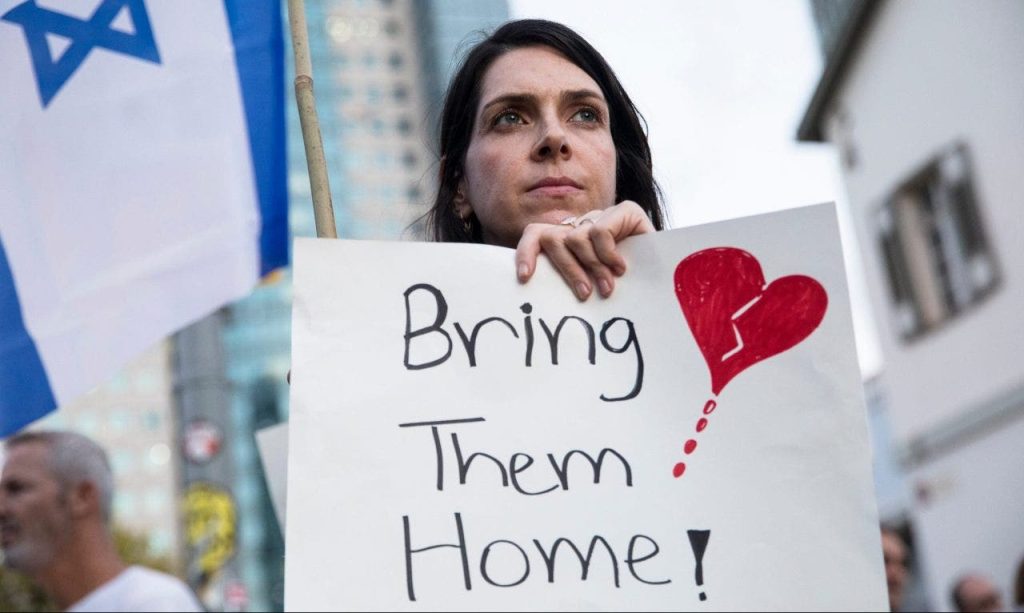The ongoing conflict between Israel and Hamas has reached a critical juncture as cease-fire negotiations, mediated by the U.S., Qatar, and Egypt, appear to be nearing a resolution. The human cost of the conflict continues to escalate. Tragically, five Israeli soldiers were killed and eight injured in an ammunition explosion in Beit Hanoun, northern Gaza, marking one of the deadliest incidents for Israeli forces in recent operations. This follows the death of four other soldiers in Gaza on Sunday. Meanwhile, Hamas continues to demonstrate its capacity for attack, firing 20 rockets into Israel over the past two weeks despite 15 months of war. The urgency of the situation is underscored by the intense diplomatic efforts to finalize a cease-fire agreement.
The proposed cease-fire agreement revolves around a phased approach. The initial phase, slated to last 42 days, focuses on the release of hostages and the provision of humanitarian aid. According to reports, the draft deal would secure the release of 33 hostages held by Hamas, primarily children, women, female soldiers, men over 50, and humanitarian cases. In return, Israel would release hundreds of Palestinian prisoners, including some high-profile detainees. The exchange ratio reportedly involves Israel releasing 50 prisoners for every female hostage and 30 children and women for every other hostage. Crucially, an Israeli official has confirmed that most of the 98 hostages abducted by Hamas on October 7, 2023, are still alive. Alongside the hostage exchange, humanitarian aid is planned to be delivered to the Gaza Strip.
A key and controversial element of the proposed deal involves allowing one million displaced Palestinians to return to northern Gaza. While this provision addresses a pressing humanitarian need, security experts have expressed serious concerns that it could inadvertently enable Hamas to regroup and rearm, thereby undermining long-term security. Retired IDF Brigadier General Amir Avivi voiced these anxieties, noting the rapid pace at which Hamas rebuilds its capabilities compared to the IDF’s efforts to dismantle them. Avivi, while advocating for the release of all hostages, cautioned against agreeing to Hamas’s demand for a complete end to the war. He suggested that “hard concessions” could be made as long as this demand is not met.
International pressure for a cease-fire is mounting, with President Biden publicly calling for an immediate cessation of hostilities and emphasizing the urgent need to free the hostages, halt the fighting, secure Israel, and provide humanitarian aid to Gaza. He stressed the importance of peace for both Israelis and Palestinians and reiterated the U.S.’s commitment to securing a deal. National Security Adviser Jake Sullivan echoed this urgency, stating that the U.S. is working closely with the incoming administration to present a united front and expedite the agreement. He highlighted the American national security interest in a swift resolution and acknowledged the critical nature of the coming hours and days. High-level U.S.-Israel coordination is evident, with Biden and Netanyahu engaging in direct discussions about the proposed cease-fire. U.S. envoy Brett McGurk remains stationed in Qatar, working tirelessly to finalize the agreement.
The conflict has resulted in significant casualties and damage. The Israeli military reports having killed approximately 17,000 Hamas terrorists and detained thousands more since the start of the war. Prior to the conflict, Hamas boasted a force of 30,000 terrorists organized into 24 battalions. While the IDF claims to have significantly disrupted Hamas’s structure, the militant group, still in control of parts of Gaza, has not disclosed its losses or provided figures on new recruitment. The Hamas-run Ministry of Health claims the death toll in Gaza has reached approximately 46,000. The disparity in reported figures underscores the challenges in obtaining accurate information amidst the ongoing conflict.
The proposed cease-fire has ignited heated debate within the Israeli government. Prime Minister Netanyahu and most of his coalition members support the deal, prioritizing the release of the hostages. However, significant opposition arises from right-wing members of the coalition, who express deep concerns about the security implications of the agreement, fearing that the pause in fighting will be exploited by Hamas to rebuild its military capabilities. This internal division highlights the complex political landscape and the difficult choices facing Israel’s leadership as they weigh the imperative to secure the hostages’ release against the potential risks to national security.

